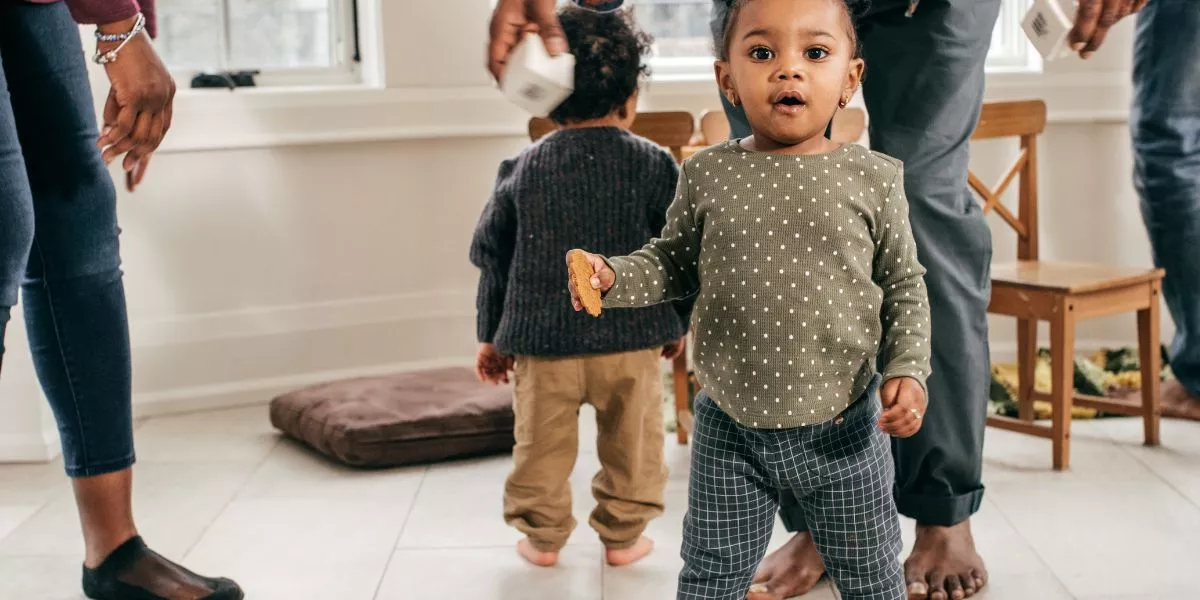
Blog
Can Virtual Playdates Benefit My Babys Social Development?

Virtual playdates can significantly benefit your baby's social development by fostering essential skills, promoting interactive learning, and enhancing communication abilities in a digital environment. Through these virtual interactions, your baby can learn to communicate, take turns, and cooperate, all while building confidence and empathy with diverse individuals. Consider setting clear expectations, scheduling playdates during alert times, and choosing user-friendly platforms for optimal engagement. These opportunities can help your baby thrive socially and navigate the modern world effectively.
Benefits of Virtual Playdates
Virtual playdates offer parents a convenient way to foster their baby's social development through interactive online sessions. By engaging in virtual playdates, your baby can begin to develop essential social skills from a young age. These online interactions provide opportunities for your baby to learn how to communicate, take turns, and cooperate with others in a digital setting. Through virtual playdates, your baby can also start to understand emotions and empathy as they interact with their peers in a virtual environment.
Moreover, participating in virtual playdates can help your baby build confidence in social interactions. These online sessions allow your baby to practice engaging with others in a relaxed and familiar setting, which can boost their comfort level when interacting with new people in the future. Additionally, virtual playdates can introduce your baby to a diverse range of individuals, helping them learn about different personalities and perspectives from an early age. Overall, virtual playdates present valuable opportunities for your baby to enhance their social development in a fun and interactive way.
Social Skills Development Opportunities
Engaging in interactive online sessions can provide your baby with numerous opportunities to enhance their social skills development. Through virtual playdates, your baby can learn valuable social skills such as taking turns, sharing, and communicating with peers. These interactions help in building your baby's confidence in social settings and teach them how to navigate social nuances from a young age.
Virtual playdates also offer a chance for your baby to practice empathy and understanding towards others. By observing facial expressions, gestures, and tone of voice during online interactions, your baby can start developing emotional intelligence and learn to recognize and respond to different emotions.
Furthermore, these virtual sessions can help your baby in forming friendships and bonds with other children, even if they're physically apart. By engaging in online activities together, babies can create shared experiences and memories, fostering a sense of connection and belonging in a digital space. Overall, virtual playdates present a unique opportunity for your baby to cultivate essential social skills in a modern and safe environment.
Potential Challenges to Consider
Considering the potential challenges that may arise, it's important to be mindful of certain factors when facilitating virtual playdates for your baby's social development.
One challenge to consider is the limited attention span of young children during virtual interactions. Babies may find it challenging to stay engaged for extended periods, which could impact the effectiveness of the playdate.
Additionally, technical issues such as poor internet connection or device malfunctions can disrupt the flow of the playdate and cause frustration for both your baby and the other child.
Another challenge is the lack of physical interaction during virtual playdates. While virtual platforms offer visual and auditory stimulation, they can't replicate the tactile experiences of traditional playdates. This absence of physical touch and shared physical activities may affect the depth of social bonding that can occur.
Lastly, coordinating schedules with other parents for virtual playdates may prove challenging, especially if time zones or conflicting routines are involved.
Balancing these challenges while maximizing the benefits of virtual playdates is key to supporting your baby's social development.
Tips for Successful Virtual Playdates
To enhance the quality of your baby's virtual playdates, prioritize setting clear expectations and creating a structured routine for the interactions. Begin by scheduling playdates during a time when your baby is typically alert and well-rested to maximize their engagement. Keep the sessions short and sweet, around 15 to 20 minutes, as babies have shorter attention spans. Ensure that the virtual platform you choose is user-friendly and conducive to interactive activities. Before the playdate, communicate with the other parent to align on the goals and activities for the session.
During the virtual playdate, be actively involved by guiding the interactions, prompting turn-taking, and facilitating sharing. Encourage your baby to use gestures, sounds, or words to communicate with their playmate. Use props or toys to stimulate engagement and create a fun atmosphere. After the playdate, reflect on what went well and what could be improved for future sessions. By implementing these tips, you can make your baby's virtual playdates more enjoyable and beneficial for their social development.
Impact on Babys Social Growth
For your baby, virtual playdates can significantly impact their social growth by providing opportunities for interaction and communication with peers in a digital setting. While traditional playdates offer face-to-face interactions, virtual playdates enable your baby to engage with others through screens, fostering crucial social skills in a technologically advanced world.
During virtual playdates, your baby learns to take turns, share, and communicate verbally or through gestures, enhancing their social development. These interactions help them understand social cues, practice active listening, and develop empathy towards their playmates, all of which are essential for building strong relationships in the future.
Moreover, virtual playdates can expose your baby to diverse perspectives and cultures, broadening their understanding of the world around them. By interacting with peers from different backgrounds, your baby learns to appreciate differences, cultivate tolerance, and develop a sense of inclusivity.
